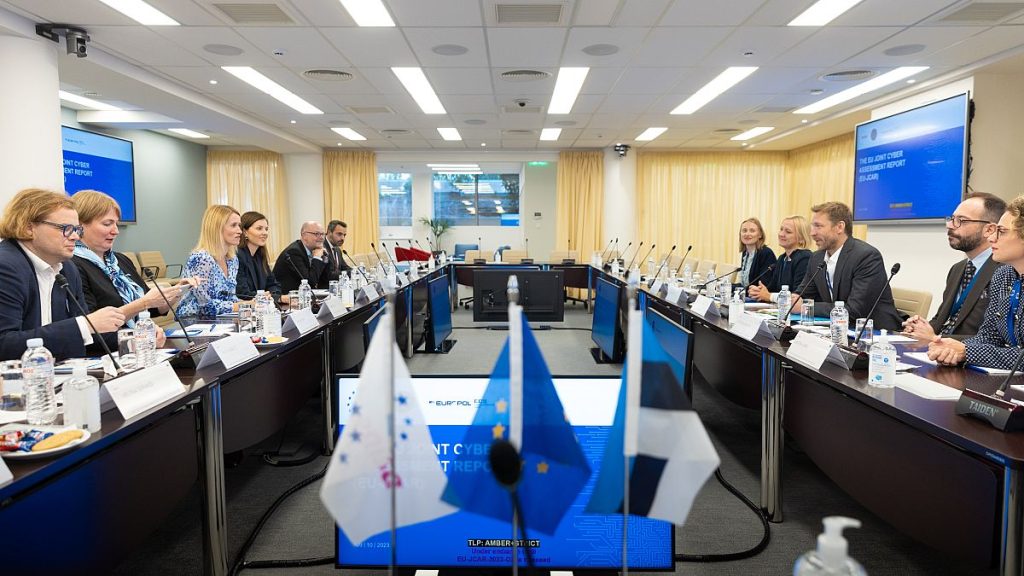The European cybersecurity landscape is poised for significant changes as the Cybersecurity Act (CSA) undergoes review and enhancement discussions. In recent developments, national governments have urged the European Commission to bolster the capabilities of the European Union Agency for Cybersecurity (ENISA). This comes in light of draft conclusions from recent diplomatic meetings in Brussels, where Member States emphasized the need for a comprehensive evaluation of the CSA, which provides ENISA with the mandate to oversee and enforce EU-wide cybersecurity regulations. With the increasing sophistication of cyber threats and the agency’s expanded responsibilities due to various cybersecurity initiatives such as the NIS 2 Directive, the Cyber Resilience Act, and the Cyber Solidarity Act, there is a clear consensus that ENISA requires augmented human, financial, and technical resources.
The call for increased resources reflects a broader understanding of ENISA’s critical role in the EU’s cybersecurity framework. Originally established as a relatively small agency, ENISA now bears the burden of a rapidly evolving cybersecurity environment, necessitating a reevaluation of its operational capabilities. Currently, ENISA is staffed by slightly over 100 employees, a figure that many stakeholders deem insufficient given its extensive responsibilities which include policy development, threat assessment, and the promotion of cybersecurity practices across the Union. The proposal from national governments aims to facilitate ENISA’s efficiency in executing its competencies without hindering negotiations related to the Multiannual Financial Framework, which is crucial for financial planning within the EU.
In addition to resource enhancement, Member States have highlighted the importance of having a clearly defined and focused mandate for ENISA. This includes establishing concrete strategic objectives that would guide the agency’s efforts in supporting national governments in bolstering their cybersecurity postures. The expectation is that by establishing a well-defined strategic framework, ENISA can operate more effectively, fostering a cohesive approach to cybersecurity across the EU. The forthcoming telecom ministers’ meeting in Brussels on December 6 is set to affirm these conclusions, signaling a more structured approach to enhancing Europe’s cyber resilience.
A point of contention has emerged regarding the agency’s involvement in proposed voluntary certifications for cloud services (EUCS). ENISA’s role in leading discussions for this initiative following a 2019 Commission task order has led to political debates. Despite ENISA’s established authority in cybersecurity, the lack of consensus around the EUCS scheme has stalled progress, leaving many stakeholders eager for clarity and direction. This debate is set to continue with the newly appointed Tech Commissioner Henna Virkkunen, who is tasked with addressing these certification processes and improving their adoption within the cybersecurity framework.
Henna Virkkunen’s mission, as outlined by President Ursula von der Leyen, will focus on bolstering the EU’s cybersecurity measures, including potentially redefining the landscape of cloud service certification. Her leadership is expected to guide ENISA through intricate discussions that seek to balance compliance, security, and innovation within the tech sector. The emphasis on enhancing cybersecurity not only seeks to protect the integrity of EU member states but also aims to ensure that European industries can compete effectively in a digitally-dependent global economy.
Overall, the upcoming evaluation of the Cybersecurity Act and the subsequent calls for greater support for ENISA reflect a critical juncture in the EU’s approach to cybersecurity policy and implementation. As the digital realm becomes increasingly complex and fraught with threats, ensuring that ENISA is adequately equipped is paramount. By reinforcing ENISA’s role and aligning its initiatives with the broader strategic objectives of EU member states, the Union can fortify its cybersecurity posture, ultimately fostering safer digital environments for its citizens and businesses. Ensuring the agency possesses the necessary resources and a clear mandate will be crucial in navigating the future landscape of cybersecurity in Europe.














